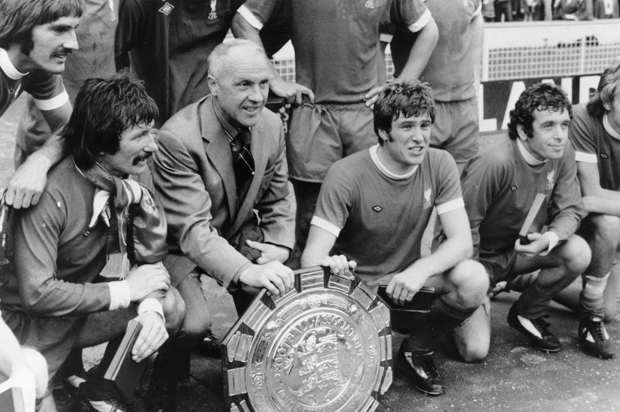Bill Shankly, the manager of Liverpool FC in the club’s halcyon days of the1960s and 1970s, once said: ‘Football isn’t just a matter of life and death, it’s far more important than that.’ But as David Goldblatt shows in this penetrating study, it was a sport then in apparently terminal decline.The deaths in the next decade of so many fans at Bradford from fire, and at Hillsborough from suffocation, exposed both its obsolete infrastructure and and anachronistic governance.
It had few friends in high places and no ready access to funds. In 1963 the maximum wage of £100 per week had been abolished.The next year the High Court ruled that the Football Association’s regulations on retention and transfer of players were an ‘unreasonable restraint on trade’. But most clubs that faced this double whammy (Goldblatt, curiously, refers only to the first) were ill-equipped to match the higher demands from players which inevitably followed.
Fast forward to the modern era. The injection of television money and investment from oligarchs, sheikhs and American entrepreneurs, to whom ownership of a prestigious club appears a highly desirable trophy, has resulted in star players’ salaries breaking the barrier of a quarter of a million pounds per week. The crowds have returned to all-seater stadia; footballers, pampered like thoroughbred racehorses, play a faster and more skilful game on manicured pitches, and a working-class pleasure has become a subject of ubiquitous interest to all sections of society, royal princes and party leaders not excepted.
But as Goldblatt shows, the benefits of this new wealth are not equally shared.As he says of the Premier League, ‘The more uncompetitive it has become, the more the world seems to want it.’ The ability to challenge for the highest prizes is restricted to half a dozen clubs.The








Comments
Join the debate for just £1 a month
Be part of the conversation with other Spectator readers by getting your first three months for £3.
UNLOCK ACCESS Just £1 a monthAlready a subscriber? Log in